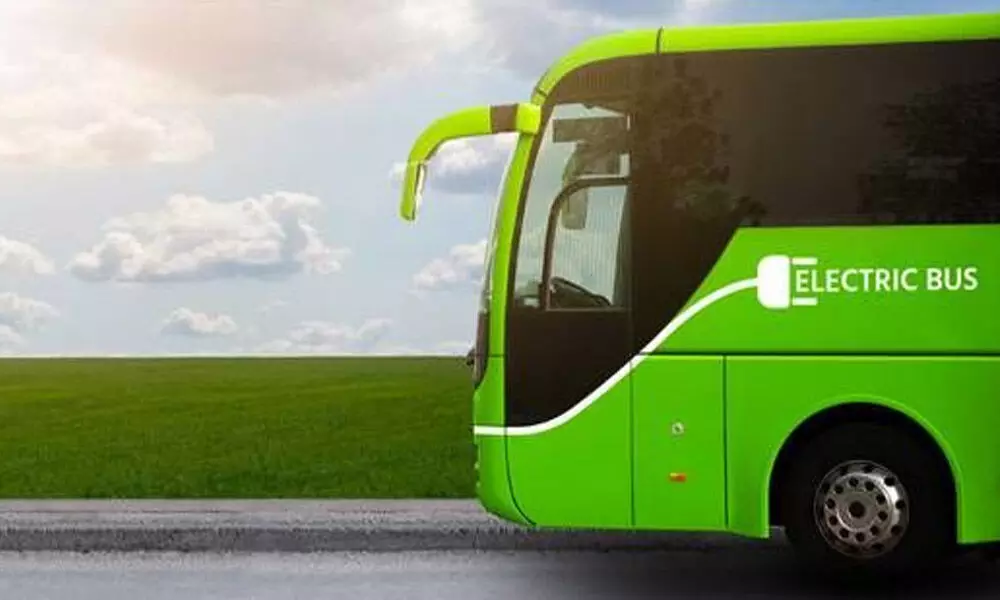APSRTC again invites E-bus bids

APSRTC again invites E-bus bids
The Andhra Pradesh State Road Transport Corporation (APSRTC) has once again invited bids for selection of fleet operators for procurement, operation and maintenance of 350 air-conditioned electric buses in different cities of the state.
Andhra Pradesh: The Andhra Pradesh State Road Transport Corporation (APSRTC) has once again invited bids for selection of fleet operators for procurement, operation and maintenance of 350 air-conditioned electric buses in different cities of the state. The RTC had in December 2019 aborted its first bid to induct electric buses into its fleet after the statutory Judicial Preview Commission asked it to drop the move, objecting to the payment of Rs 45 lakh as subsidy per bus.
In the fresh Request for Proposal floated in May, the RTC once again made the provision for extending the subsidy of Rs 45 lakh per bus but the Judicial Preview Commission judge B Sivasankara Rao objected to it yet again saying "such financial obligation of more than Rs 157.50 crore is non- viable and such a huge incentive is a loss to the exchequer."
Accordingly, the RTC amended the bid proposal and dropped the subsidy clause. With the Government of India extending the Phase-II of Faster Adoption and Manufacturing of (Hybrid &) Electric Vehicles (FAME) in India scheme till June 30, the RTC is rushing the process through so as to avail of the demand incentive of Rs 55 lakh per bus, official sources said.
Last date for submission of bids is June 9. The RTC originally planned to deploy 50 buses on the Tirupati-Tirumala ghat route, 100 each in Vijayawada and Visakhapatnam and 50 each in Kakinada and Amaravati, to be run on various routes in the respective regions.
But now it reduced the number by 50 in Vijayawada (million-plus city) and allotted them to Tirupati (smart city). The Judicial Preview Commission judge reiterated his suggestion that the RTC purchase diesel buses of BS-VI standard rather than electric buses as the technology was still in a developing stage.
The RTC, however, justified the plan to induct e-buses since the cost of diesel was increasing day-by-day. "From around Rs 62 in 2019, price of diesel has touched almost Rs 100 per litre now. At the same time, battery cost of an e-bus has reduced by 50 per cent and the technology has stabilised. The per-kilometre operation cost of an e-bus will now be almost the same as a diesel bus, which has gone up to Rs 43," a top public transport official said.
Besides, cost of power would be over Rs 35 per kilometre for a diesel air-conditioned bus as against just Rs 6.76 (9-meter) and Rs 8.11 (12-meter) for an e-bus, he pointed out. The 350 e-buses would make only three per cent of the total RTC fleet of 11,300 and it has plans to add another 650 in the next phase. The RTC has installed solar power plants at its depots in Madanapalle, Kakinada, Nandyala and Chittoor. "There is a proposal to scale up rooftop solar power units in all the RTC bus stations and depots across the state. This will help us reduce the cost of power, which could also be used for charging the e-bus batteries," the official said.




